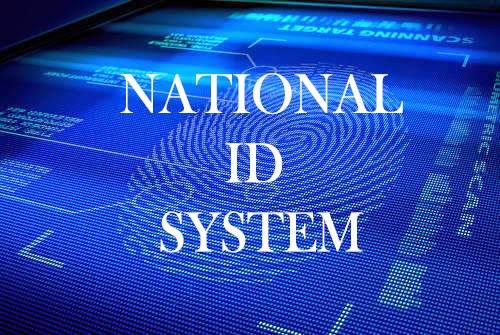National ID to Make Life Better for All Jamaicans

The Government says the proposed National Identification System (NIDS) is poised to secure the future growth of Jamaica. The NIDS is to provide every Jamaican citizen with a single source of trusted identification and begin the country’s push toward e-Governance.
It is expected to replace all forms of identification with a single identification card and number, allowing the Jamaican citizen guaranteed freedom of access to Government and private sector services.
“Let me be clear, NIDS will not collect DNA. It will create a new, clean database to collect two forms of biometrics only – fingerprint and facial recognition. The NIDS will not collect secondary biometrics such as eye retina scans, footprints, palm prints and other similar biometrics unless the candidate does not have fingers to print or a clear fingerprint,” explained Jacqueline Lynch-Stewart, acting chief technical director at the Office of the Prime Minister where the project is housed.
Personal financial information is not required under NIDS,
“NIDS is really the great equaliser in our democracy, by ensuring that every single citizen is connected to the Government. Importantly the NIDS will provide the platform for greater efficiency so that the Government can offer essential social services efficiently and support the economy through digital applications,” elaborated Lynch-Stewart.
The introduction of a NIDS would place Jamaica on par and in many cases ahead of its global trading partners.
“In some ways, the NIDS is similar to the US social security system but more advanced,” Lynch-Stewart added. The NIDS provides every citizen with a randomised nine-digit National Identification Number, referred to as a NIN, for life. Citizens and legal residents also receive a National Identification Card, which bears the number, a photo, a signature and other basic information. With this one ID, citizens can access their PATH (Programme for Advancement through Health and Education) and NIS (National Insurance Scheme) benefits, health and education benefits, immigration services and more,” Lynch-Stewart explained.
In the meantime, NIDS Project Director Warren Vernon is emphasising that the NIDS database will be safe and secure, He said Government agencies and private sector partners are not able to access the database as the system only verifies data provided.
“To put it simply, the agency must enter your identity details provided on the National Identification Card (NIC) or the information you present and the system responds true or not true based on the entered data. The system says, ‘yes that is you’ if in fact, it is you. It does not elaborate or provide additional details,” he noted.
Jamaican citizens and legal residents will be able to enrol for the NIDS at enrolment centres across the island on a phased basis.
“The enrolment process will be simple; it can start online but documents will need to be verified at Enrolment Centres before a national identification number and a card are issued,” detailed Vernon.
The layered roll-out and management of the NIDS will be handled by a new agency, the National Identification and Registration Authority (NIRA), pending the passage of the NIRA Act, 2017. NIRA will replace the Registrar General Department (RGD) and will provide more enhanced services.
The project is funded jointly by the Government of Jamaica and the Inter-American Development Bank, IDB at a cost of US$68M, and will be used to improve and upgrade the Information and Computer Technology (ICT) systems across multiple Government agencies. This is to facilitate the introduction of NIDS as a prerequisite to e-Governance, greater efficiency, reduced costs and increased security.
A website has been established to address frequently asked questions and provide additional details on NIDS, prior to passage of the Bill in Parliament.
During the transition period, other forms of ID, such as the Tax Registration Number, Electoral ID, Driver’s Licenses and Passports will also be issued.
However, once fully implemented citizens will only require one ID, the NIDS, to benefit from Government programmes.